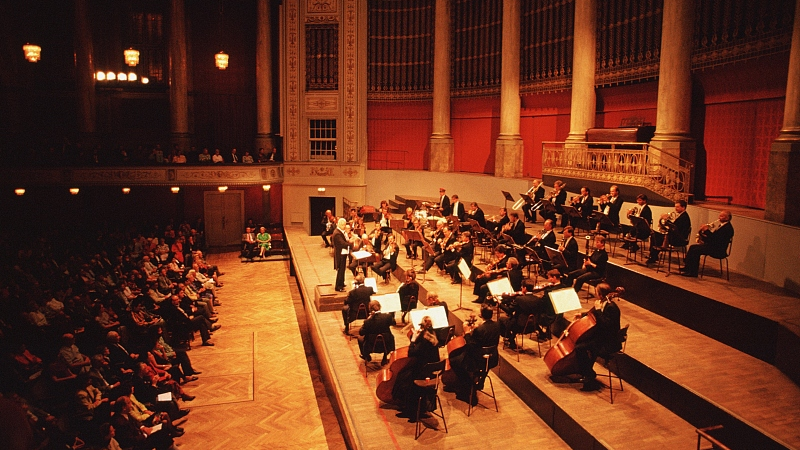
While a virus-laden silence has descended over what is normally a busy period of concerts and balls in the Austrian capital Vienna, the city's world famous New Year Concert is at least providing one saving grace – albeit to an empty hall.
The city's concert halls were among the first in Europe to re-open in June, in the wake of the first wave of lockdowns, as Vienna tried to preserve its reputation as one of the world's preeminent centers of classical music.
But as the virus took hold again in autumn, fresh restrictions soon followed.
Music venues again had to close in November, in a city that normally boasts some 15,000 concerts and musical events annually.
But one show will go on, no doubt charged with more symbolism this year.
"If we cancel the New Year's Concert, that would be such a horrible sign to the entire world," Vienna Philharmonic Chairman Daniel Froschauer told AFP News Agency at the end of October when rising infection numbers were forcing Vienna's cultural world to prepare for a new phase of restrictions.
In December, even once venues had been forced to close, Froschauer said at a press conference that it would be "impossible" not to go ahead – and his view has prevailed.
The first one of the prestigious concerts took place at a much darker moment in Austrian history, on New Year's Eve 1939.
Since then it has built up a following which sees it broadcast in more than 90 countries to more than 50 million people.
Normally the lucky few who get to go in person at Vienna's Musikverein are chosen in a draw.
This year though the musicians, conducted by Italian Riccardo Muti, will perform to an empty hall.
But to break the silence, the Austrian Broadcasting Company, an Austrian national public service broadcaster, will play in applause from 7,000 music lovers watching from home.
If, as Froschauer says, the Philharmonic is to Austria as "soccer is to England," then it's only fitting that the New Year's Concert should be a rare survivor of lockdown closures.
But the wider shutdown of cultural life has been catastrophic for many artists. Since spring, Froschauer has been trying to raise their plight, even taking their case to Chancellor Sebastian Kurz.
Froschauer insists performances are safe, arguing that in the several months in which restrictions were relaxed, "we never once had a large cluster" of infection from performances.
"We do PCR tests in order to play and we wear masks" until playing, he says. "Our audience is very disciplined."
Source(s): AFP

